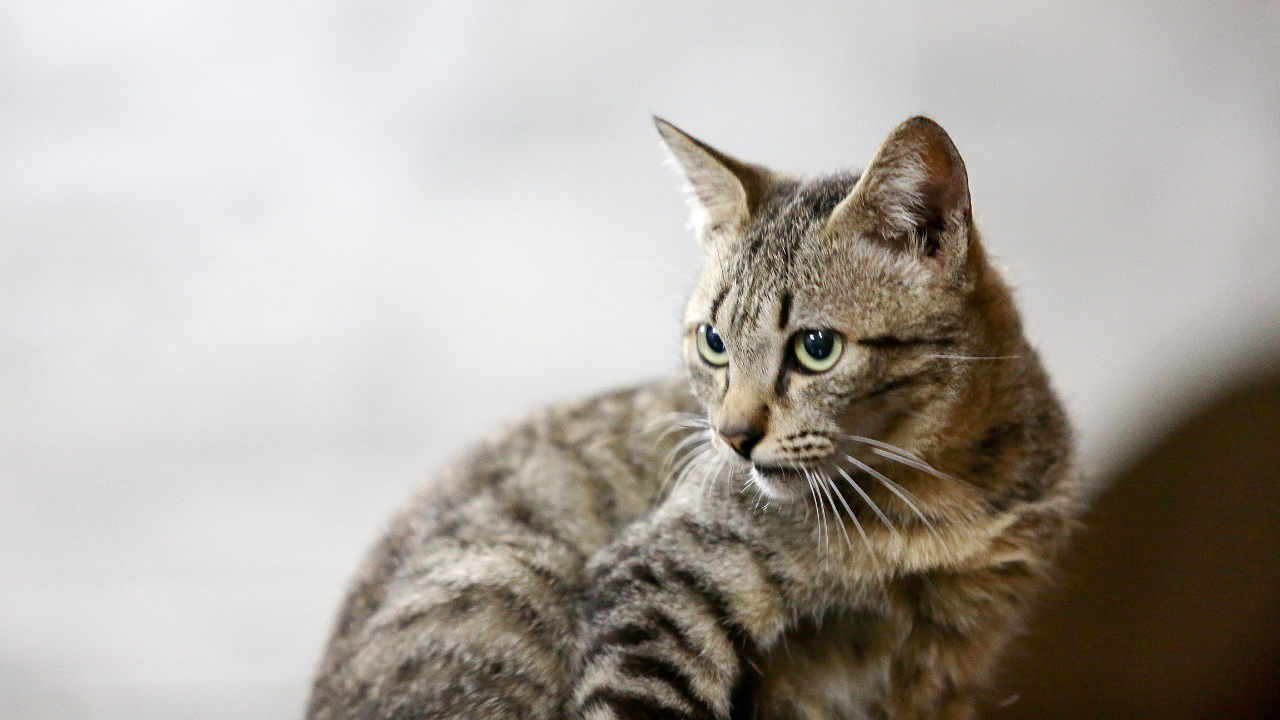
FIV in Cats: What You Should Know About Feline Immunodeficiency Virus
What is FIV?
FIV stands for Feline Immunodeficiency Virus, and is a common infectious disease in cats that is caused by a retrovirus.
The disease was first discovered in the USA around the 1980s. The virus attacks white blood cells which leads to the weakening of the cat's immune system. This makes them susceptible to infections and other diseases.
Cats may appear normal and show no clinical signs of the disease for years. Unfortunately there is no cure, so a cat will remain infected for their whole life.
Over time their immune system will continue deteriorating. Eventually the cat can become so vulnerable to secondary infections, that common bacteria, viruses, or fungal infections can cause severe illness.
How do cats get FIV?
FIV is transmitted through direct contact. Most frequently it is caused by a deep bite from an FIV positive cat. The infected cat has the virus in its saliva, which is then spread through the bite wound.
Cats that roam around freely outdoors are more at risk, for example due to fighting over territorial issues.
FIV can also be transmitted from an FIV positive mother to her kittens during pregnancy, birth, or nursing.
An FIV-positive cat should be kept indoors and separate from healthy cats to minimize the risk of transmission.
What are the symptoms of FIV?
When a cat catches FIV, the symptoms are normally so mild that they go unnoticed. Over time, the virus spreads to lymph nodes throughout the body and results in symptoms like mild fever and loss of appetite.
In the next phase, known as the asymptomatic phase or latent phase, the virus continues to replicate without showing obvious signs of illness. This phase can last for months and in some cases it can last for years.
The next phase is known as the progressive phase. In this phase, the virus spreads throughout the cat's immune system until it is too weak to combat infections effectively.
This is when recurrent secondary infections are common. Cats may develop inflammation of gums and mouth, immune-mediated blood disorders, and cancer. Other symptoms related to FIV include
- Fever
- Loss of appetite
- Diarrhea and vomiting
- Seizures
- Weight loss
- Lethargy
- Recurrent fever
- Lymph node enlargement
- Behavioral changes
- Chronic conjunctivitis
What is the life expectancy of a cat with FIV?
The prognosis of the disease depends on the stage and severity of the disease. If diagnosed at an early stage, clinical signs can be delayed and they may not develop immunodeficiency syndrome.
Although there is no cure, by giving them a good quality lifestyle and level of care, they may be able to live a normal lifespan.
FIV-positive cats are at higher risk of developing secondary infections, and these infections can affect their life expectancy.
Life expectancy is quite variable and depends on the severity of the disease. If managed properly, cats can live a normal life for years, but there is no exact number.
While you might not know their exact life expectancy, with the right care and treatment they can still have a wonderful life filled with joy and love.
Can an FIV-positive cat live with a FIV-negative cat?
This is certainly a possibility if the cats are gentle and kind to each other, and live together in peace. FIV is transmitted through bites, so if there is no fighting, they can live together safely.
How is FIV diagnosed?
FIV is diagnosed through a blood test that checks for the presence of antibodies. These antibodies are produced by the body's immune system during infection.
Most frequently a test called an ELISA test is used to check for antibodies. If the result is positive, and antibodies are present, it usually indicates that your cat has been infected by FIV.
This test is quite reliable but there is always a chance for error. To confirm the diagnosis other techniques such as a Western Blot or PCR test can be used.
Management options and treatment
If your cat has been diagnosed with FIV, you can work on improving their quality of life by preventing and treating secondary infections. Management and treatment include the following:
- Feed your cat a nutritionally balanced, complete diet of a high quality brand. Avoid raw diets as there can be a risk of food-borne bacterial and parasitic infections.
- A detailed physical examination should be performed every six months that includes serum biochemical analysis, urine analysis, and a complete blood count.
- Drugs that help with inflammation and boost their immunity can be helpful.
- Maintain good preventive health care that includes preventive medication for internal and external parasites such as fleas, heartworms, and intestinal worms.
- Any sign of illness should be promptly diagnosed and treated to prevent secondary diseases. Early diagnosis of the problem and timely initiation of treatment increase their chances of recovery..
- Secondary bacterial infections can be treated using antibiotics. However, infections may keep recurring due to their compromised immune system.
- Antiviral drugs like AZT and immunomodulators have been found effective as good supportive therapy.
- Feline interferon omega is a modified interferon that has anti-viral and immune modulating effects that your vet may suggest as a treatment.
How to prevent and control FIV?
The only way to prevent your cat from catching FIV is through preventing exposure to the virus. Keeping your cat as an indoor only cat is one of the best ways of preventing FIV infection.
A vaccine against FIV is available in a few countries but it is not completely effective because there are a number of strains of FIV.
To prevent FIV passing to future offspring, female cats should be spayed.
Male cats should be neutered to prevent territorial behavior and fighting.
The chances of transmission are also low in households that have a stable social structure.
Get your cat vaccinated and visit your vet regularly to provide regular preventive health care as recommended by your vet. If you’re concerned that your cat has caught an infection, you should inform your insurance company before buying any plan as most of the insurance companies do not provide payouts for pre-existing conditions.
Can humans catch FIV?
FIV is a species-specific virus so it cannot be transmitted to other species, including humans. That means you can take care of a cat suffering from FIV, without any concern about catching it.
Final thoughts:
In conclusion, FIV-positive cats will require extra care and may have more medical expenses, however they can have wonderful lives with the right care. We believe all cats deserve a loving forever home, no matter what their health is like. So if you’ve found your perfect cat, don’t let an FIV diagnosis be a deal-breaker for you!
References:
https://icatcare.org/advice/feline-immunodeficiency-virus-fiv/
https://www.rspca.org.uk/adviceandwelfare/pets/cats/health/fiv
